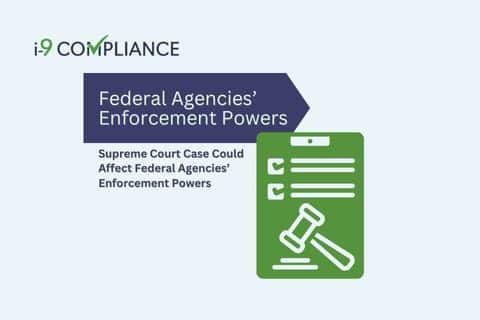Supreme Court Case Could Affect Federal Agencies’ Enforcement Powers

December 13, 2023
The United States Supreme Court recently heard arguments concerning the Security and Exchange Commission (SEC). According to the case, disagreements surfaced about the SEC’s use of in-house proceedings with administrative law judges. If the court decides that the subjects of these proceedings have the right to a jury trial, it could limit the SEC’s enforcement ability.
The original case involved an investment advisor and his firm. According to the case, the SEC found them guilty of security fraud during an administrative proceeding. This discovery led to a $300,000 fine and the requirement to repay nearly $700,000. However, the investment advisor appealed the decision to the 5th US Circuit Court of Appeals.
He made a claim under the Seventh Amendment, reasoning that he had the right to a jury trial. Though the 5th Circuit agreed and ruled in the investment advisor’s favor, the case has reached the Supreme Court. The current administration is appealing the ruling by the 5th Circuit, which found three problems with the SEC’s in-house proceedings.
This two-hour session took place on a Wednesday. Most of this session focused on whether the Seventh Amendment gives an individual the right to a jury trial when the subject of an SEC enforcement case. Some justices indicated that the accused has the constitutional right to a jury trial in a federal court, arguing that it applied when involving civil penalties.
One justice found it problematic that the government could deprive someone of their property and substantial sums in a tribunal that is not impartial. However, another commented on how the country’s problems have grown more complicated. The growing complications have led to the Congress often determining solutions.
The SEC conducts in-house proceedings each year for hundreds of cases, and this is after reducing the number of these proceedings due to losing a Supreme Court case back in 2018. Another loss would make obtaining large settlements more difficult for the SEC. If the Supreme Court rules that the SEC’s in-house proceedings violate the Seventh Amendment, it could affect other federal agencies, such as the Department of Justice.
This decision could result in more jury trial options. For example, businesses accused of immigration or employment eligibility verification (Form I-9) violations could receive a jury trial. One way to avoid such litigation is using an electronic I-9 management system. This system guides employers throughout the I-9 process. It also safely and securely stores the forms and documentation.
Automate your employment eligibility verification today with the ensured compliance of I-9 Compliance.